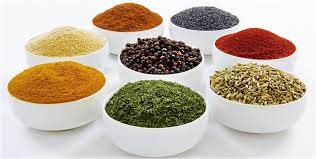spice
英 [spaɪs]
美 [spaɪs]
- n. 香料;情趣;调味品;少许
- vt. 加香料于…;使…增添趣味
- n. (Spice)人名;(英)斯派斯
CET6 TEM4
spice 香料,调味品,趣味,情趣来自古法语 espice,香料,来自晚期拉丁语 species,香料,物品,词义衍生自早期拉丁语 species, 种类,类别,词源同 special,specific.引申诸相关词义。
- spice
- spice: [13] Spice is ultimately the same word as species. It comes via Old French espice from Latin speciēs ‘appearance, kind’. In late Latin its plural came to be used for ‘goods, wares’, probably from the notion of a particular ‘sort’ of merchandise, and by the time the word reached English its usage had narrowed still further to ‘aromatic plant substances of oriental or tropical origin, used in cooking’.
=> special - spice (n.)
- c. 1200, "something added to food or drink to enhance the flavor, vegetable substance aromatic or pungent to the taste," also "a spice used as a medication or an alchemical ingredient," from Old French espice (Modern French épice), from Late Latin species (plural) "spices, goods, wares," in classical Latin "kind, sort" (see species). From c. 1300 as "an aromatic spice," also "spices as commodities;" from early 14c. as "a spice-bearing plant." Figurative sense of "attractive or enjoyable variation" is from 13c.; that of "slight touch or trace of something" is recorded from 1530s. Meaning "specimen, sample" is from 1790. Early druggists recognized four "types" of spices: saffron, clove, cinnamon, nutmeg.
- spice (v.)
- "to season with spices," early 14c. (implied in spiced), from spice (n.), or from Old French espicier, from the French noun. Figurative sense of "to vary, diversify" is from 1520s.
- 1. To add spice to the debate, they disagreed about method and ideology.
- 他们在方法和观念上都持不同意见,这使辩论精彩了很多。
来自柯林斯例句
- 2. Make deep slashes in the meat and push in the spice paste.
- 在肉上切出深深的口子,再把辣酱塞进切口中。
来自柯林斯例句
- 3. Her publisher wants her to spice up her stories with sex.
- 她的出版商想让她在小说中增添些性描写以吸引读者。
来自柯林斯例句
- 4. Variety is the spice of life!
- 多样化使生活更有情趣!
来自柯林斯例句
- 5. The spice imparts an Eastern flavour to the dish.
- 这种调味品会给菜肴添加一种东方风味。
来自《权威词典》
[ spice 造句 ]
